Events
| Name | organizer | Where |
|---|---|---|
| MBCC “Doing Business with Mongolia seminar and Christmas Receptiom” Dec 10. 2025 London UK | MBCCI | London UK Goodman LLC |
NEWS
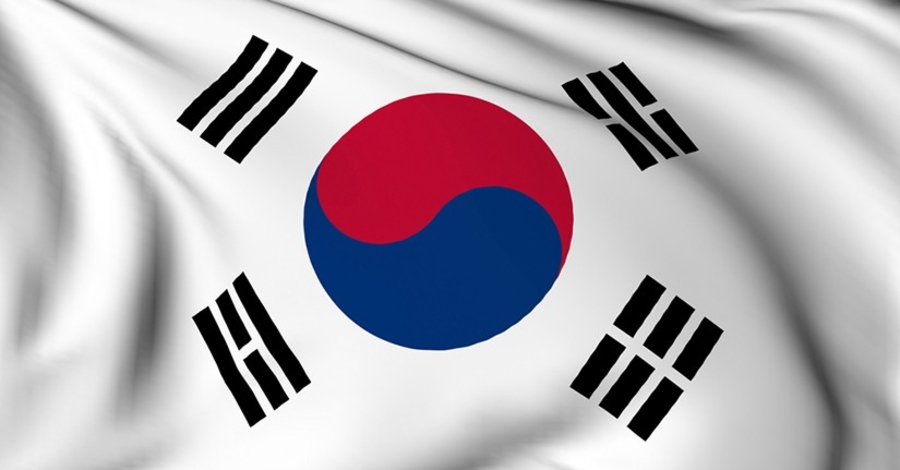
Homeplus' private brand products hit store shelves in Mongolia www.koreatimes.co.kr
Korean major retailer Homeplus' private brand products are gaining attention from Mongolian consumers after the firm's distribution network expanded to the country earlier this month, according to the firm.
On Sept. 4, the company's products arrived on the shelves of 14 Orgil and Tout'en locations in Ulaanbaatar, which are two discounted retail brands run by Mongolia's Circle Group. Homeplus said its product sales were hot during the first week of sale.
Homeplus Signature products were displayed at the front of the stores, according to the company. There were 200 different kinds of products ranging from processed foods to condiments, dried noodles, snacks, confectioneries, beverages and daily hygiene products like paper towels and wet tissues.
Homeplus said its expansion to Mongolia is based on the country's heavy reliance on imports. While the imported products on local shelves have been selling at affordable prices, Homeplus aims to distribute its private brand products at cheaper prices.
The company also took into account the fact that over 37,000 Mongolians are estimated to live in Korea and have grown accustomed to Korean consumer products.
Homeplus' Mongolian expansion came after executives from Circle Group visited Seoul two times to sign the expansion deal. Established in 1996 as a trading and construction company, Circle Group has been listed in the top 100 firms by the Mongolian National Chamber of Commerce and Industry six years in a row.
Homeplus said its long-term goal is to settle in the Mongolian market and expand Korean foods to consumer markets around the world.
By Ko Dong-hwan
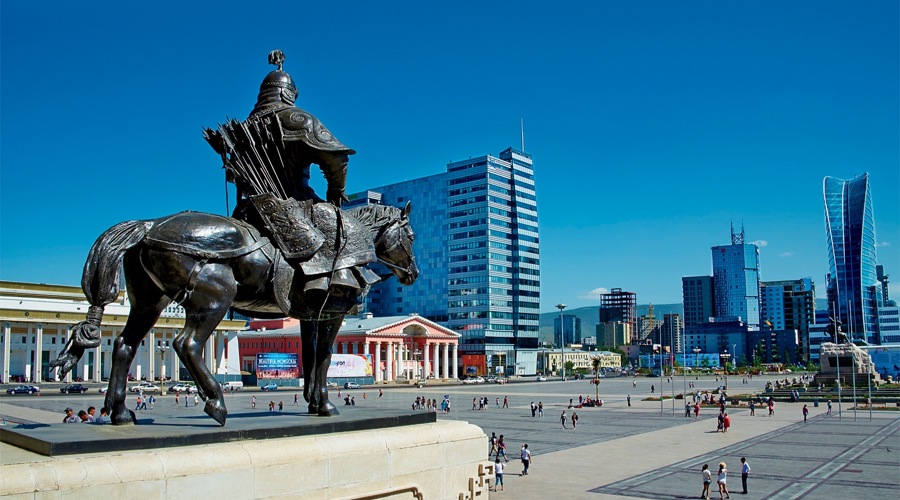
Russia and China Unite Over Mongolia www.geopoliticalfutures.com
But the pursuit of influence in the strategically important country could one day drive them apart.
The periphery commands growing attention. Amid ongoing Western pressure on Russia and the complexities confronting the Chinese economy, both nations seek to cultivate alternative transit routes and foster trade ties. Mongolia, strategically wedged between them, is garnering mounting interest as a transit hub. The three nations have signaled a shared commitment to bolster trilateral cooperation, with the construction of the China-Russia-Mongolia economic corridor ranking high on their agenda.
In September, diplomatic interactions and gatherings surged. A noteworthy assembly convened, featuring luminaries such as Chinese Foreign Minister Wang Yi, Russian Security Council Secretary Nikolai Patrushev and Mongolia’s National Security Council secretary. Ambitious blueprints emerged for the creation of five road and three railway corridors in Mongolia. This trajectory sets the stage for enhanced cooperation, yet it also harbors potential pitfalls, including competition for influence in Mongolia not only among global and regional powers but also between China and Russia.
BY: Geopolitical Futures (GPF) was founded in 2015 by George Friedman, international strategist and author of The Storm Before the Calm and The Next 100 Years. GPF is non-ideological, analyzes the world and forecasts the future using geopolitics: political, economic, military and geographic dimensions at the foundation of a nation.
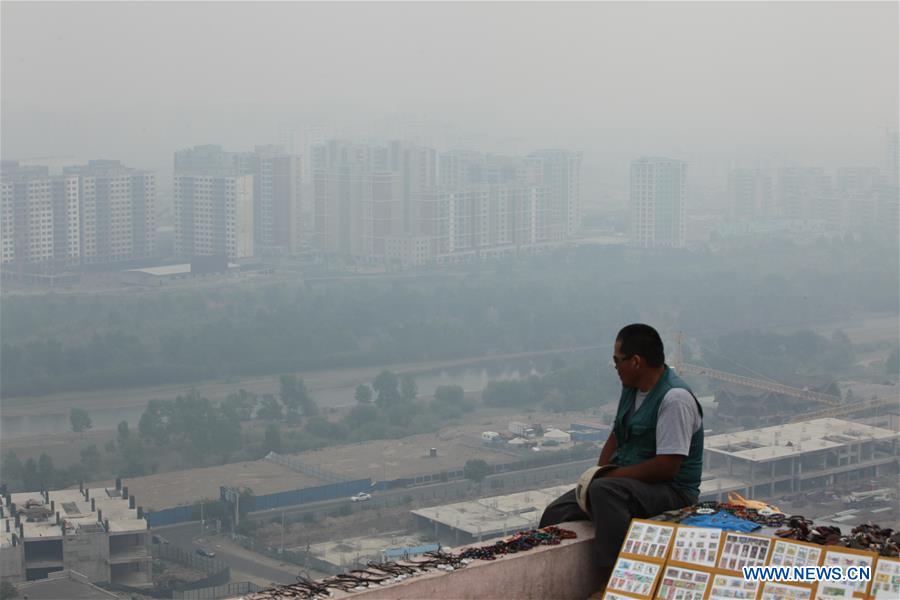
HCFC substance use reviewed www.theubposts.com
Mongolia is a part of the Montreal protocol on substances that deplete the ozone layer and is committed to gradually reducing the use of hydrochlorofluorocarbons (HCFCs) and eventually phasing them out. Currently, Mongolia is implementing Phase II of the “Hydro chlorofluorocarbon-type Refrigerant Phasing Management Program (HPMP)” under the agreement with the Multilateral Fund of the Montreal Protocol, which aims to ensure the implementation of the Montreal Protocol, according to the Ministry of Environment and Tourism.
Within the framework of the HPMP program, the use of HCFC substances is targeted to be phased out by 2030. Within the scope of the HPMP II phase, it is aimed to completely stop the import of HCFC substances and phase them out by January 1, 2030, which is the baseline level of 1.4 ozone-depleting capacity (ODP).
The government of Mongolia reviews the consumption of HCFC substances (in the case of Mongolia, the amount of imports is considered as the total consumption of the country), which is reported to the Multilateral Fund and the Ozone Secretariat every year. In 2016, an international expert of UNEP conducted two audits of Mongolia’s substance use from 2013 to 2019. By Mongolia’s obligations under the HPMP II phase of UNEP, the review of national HCFC consumption was approved by the 88th meeting of the Multilateral Fund’s Executive Committee in 2021.
On September 22, 2023, through the National Ozone Authority (NOA) in the Ministry of Environment and Tourism, the international experts of UNEP prepared the 2020-2022 HCFC consumption report based on the results of the implementation of the II phase of the HPMP program and presented the results to national stakeholders.
Based on the results of the review, only HCFC-22 ozone-depleting substance (ODS) is imported as a pure substance for Mongolia. No illegal domestic trade in HCFC-22 substances was detected during the period covered by this examination. During the period covered by the review of HCFCs, the source of imports was China, a party to the Montreal Protocol as well. Mongolia’s total certified consumption of HCFC-22 is lower than the maximum allowable amount stipulated in the HPMP Phase II agreement.
The review report on the use of HCFC substances in Mongolia will be prepared and submitted to the 93rd meeting of the Multilateral Fund Executive Committee in 2023 for discussion, as stated by the National Ozone Authority.
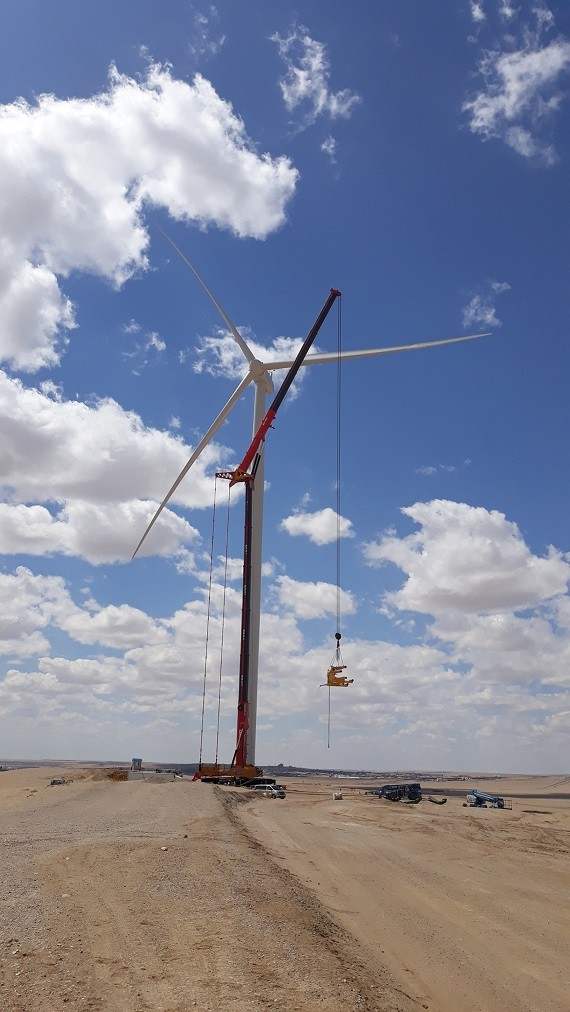
Why the Transition to Renewable Energy Should Matter to Mongolia and Mongolians www.gogo.mn
Mongolia, the land of eternal blue sky, is blessed with abundant natural resources. Export of minerals, in the raw material form, continues to be the backbone of Mongolia’s economy. However, Mongolia has a huge potential to diversify its economy to benefit both its people and its environment. As the world moves towards a more sustainable future, Mongolia has great prospects to capitalize on its vast potential for renewable energy to ensure the health and prosperity of the future generations. Furthermore, to meet its growing electricity demand, Mongolia is in urgent need of new generation capacity and replacing ageing, inefficient coal-fired power plants.
Wind, solar and hydropower are becoming widespread around the world and for good reason: unlike fossil fuels, renewable energy sources produce little to no local pollution or greenhouse gas emissions, and are instrumental in combating climate change. As Mongolia is one of the countries most impacted by climate change, taking measures to counter the effects of climate change is imperative for the future health of Mongolia. Renewable energy can be used without depleting the earth's precious non-replenishable limited resources.
Renewable energy is increasingly economically competitive and contributes to independence from energy imports.
How Renewable Energy can benefit Mongolia
Mongolia is uniquely positioned to generate renewable energy to provide reliable and affordable electricity for its growing population and beyond. The Gobi Desert for instance, has been identified as having among the highest solar and wind energy potential in the world, with over260 days of bright sunlight and a strong wind corridor.
Furthermore, wind and solar have become the cheapest ways to add new power generation capacity, and therefore unsurprisingly make up the majority of new capacity additions globally. After a decade of incredible cost reductions – driven by technological innovations, economies of scale, stable policy environments and the use of competitive tenders – onshore wind and solar now offer the cheapest form of new generation capacity in almost all jurisdictions. By deploying well-designed auctions, countries around the world have been able to achieve low tariffs. With the right investment climate, Mongolia is well positioned to benefit from low cost renewable energy given its enviable resources.
In addition to being cheap, wind and solar PV will utilise domestic resources, and thus contribute strongly to Mongolia’s energy security and independence. By increasing the share of energy from renewable sources, Mongolia can significantly reduce greenhouse gas emissions and contribute to global efforts to limit temperature rise. In urban areas, renewable energy can greatly contribute to cleaner air which in turn results in better public health, a decrease of respiratory illnesses and non-communicable diseases and a drop of premature deaths among the population.
A growing renewable energy sector in Mongolia can help create employment in new, growing sectors, and attract foreign direct investment if Mongolia takes advantage of its abundant natural resources, and makes the pivot to invest in renewable energy jobs. In the long term, thermal coal imports of other countries are expected to decline as these countries are in the midst of a climate and energy transition. In this situation, Mongolia could establish itself as a leader in mining and export of natural resources that are used to manufacture batteries and other energy technologies. Strengthening a renewable energy market in Mongolia could help to diversify the economy and open the gates for foreign investment in factories to manufacture and export clean technologies to an ever-growing global market. In addition, the use of renewable energy and increase of energy efficiency can also assist the extractive industries sector to become more resource and cost-efficient and therefore help maintain competitiveness.
We encourage Mongolia to move in the direction of a "balanced energy mix" to ensure energy stability and reliability by creating basic conditions for the development of renewable energy. Though, in the long run it would be prudent to prioritize renewable energy as the primary source to meet Mongolia’s energy needs and utilize fossil fuels as a back up.
Common Concerns
Renewable energy, such as wind, solar and hydropower may require significant upfront investments and infrastructure development, but these costs will be compensated by the long-term benefits. Some procurement strategies, such as procuring renewable energy from the private sector through competitive tenders, may reduce the need for significant upfront public investments while retaining the environmental and financial benefits of renewable energy.
One of the often-repeated concerns about renewable energy technologies such as wind or solar PV relates to their variable power generation. In other words, electricity generated from such sources fluctuates, based on varying wind and sun availability, which requires new grid management technology and approaches. To accommodate a high renewable energy penetration in the power system, it is necessary to increase investments in the power system to make it bigger, stronger, and smarter, particularly the transmission network. One of the key measures that can be taken is to enhance the flexibility of the system by installing battery storage, pumped storage, or in the future, generate green hydrogen. Initial experience shows that Mongolia is ready to overcome this and other barriers. For example, the Asian Development Bank is financing Mongolia’s first utility-scale advanced battery energy storage system near Ulaanbaatar. In addition, Japan is supporting the installation of a battery energy storage system at the electric power substation in Darkhan. These facilities can supply clean power at peak demand times and helps to integrate additional renewable energy capacity in the power system. Initiatives such as these can provide the necessary demonstration effect to address the perceived risks associated with a renewable energy integration, and ultimately provide the basis for replication at scale.
From the financial point of view, foreign direct investment is key to developing renewable energy in Mongolia. However, foreign investors hesitate to further invest in Mongolia unless Mongolian authorities restore investors’ confidence by fully resolving the outstanding issue of energy tariffs under the power purchasing agreements with the renewable energy producers.
Examples from Other Countries
The good news is that these challenges are manageable and many countries around the world are already operating power systems with high penetrations of variable generation capacity. Ireland is a good example, which already produces over 35% of its power from onshore wind. Like Mongolia, Ireland has very few interconnections with other countries and therefore largely has to balance its grid alone.
Mongolia’s regional neighbours in Central Asia, such as Uzbekistan, are rapidly moving ahead in the development of wind and solar PV capacity. Uzbekistan has established a renewable energy auctions programmes and successfully contracted new capacity at very competitive tariffs. Uzbekistan is aiming to develop 7 GW of solar and 5 GW of wind capacity by 2030, with the goal of meeting 25% of its electricity needs through renewable energy sources by that time.
Australia, which like Mongolia faces the challenges of large distances between the renewable energy source and the grid and a heavy reliance on coal-fired power, is on the path to transition to the goal of 82% of electricity needs from renewables by 2030. Today, renewables account for an estimated 36% of Australia’s total electricity generation compared with just 17% in 2017.
Conclusion
Mongolia is now at a crossroads, where it has the opportunity to embrace renewable energy and become an active promoter of sustainable development. Mongolia has ratified international conventions, such as the Paris Agreement, a legally binding international instrument on climate change, and has pledged ambitious goals to reduce its greenhouse gas emissions by 22.7% by 2030. Creating a favourable legal and regulatory framework for investing in renewable energy is a key part of fulfilling these commitments.
All countries are facing the challenge of transitioning to carbon neutrality as a long-term imperative. A transition like this of course does not happen overnight. Coal may remain an essential energy source for Mongolia but has a limited horizon, whereas renewable energy is the future. Embracing renewable energy aligns with Mongolia's traditional values of respect for nature. Mongolia has a unique opportunity to lead the way in sustainable development, attract investments and become a model for other countries in the region to combine respect for nature and combating climate change with investing in the promotion of human prosperity and health.
In conclusion, investing in renewable energy for Mongolia is beneficial from multiple angles. It would provide benefits for the environment and the people of Mongolia, but also for the economy, energy security and independence. The potential is there, but it needs to be harnessed and capitalized on. This is an endeavour in which Mongolia’s development partners stand ready to support, so to ensure a brighter, healthier, and more prosperous future for generations to come.
The undersigned list of partners in Mongolia’s renewable energy transition
- Embassy of Australia
- Embassy of the Czech Republic
- Delegation of the European Union
- Embassy of France
- Embassy of Germany
- Embassy of Hungary
- Embassy of Japan
- Swiss Cooperation Office and Consular Agency
- Embassy of the United Kingdom
- Embassy of the United States
- Asian Development Bank
- European Bank for Reconstruction and Development
- United Nations Development Program
- United Nations Resident Coordinator Office
- World Bank

Canada and Mongolia: mining more than minerals www.mongoliaweekly.org
As Canada and Mongolia mark 50 years of diplomatic relations, eyes turn to broadening economic links beyond the mining sector. Mongolia is eager to diversify trade with “third neighbors” like Canada beyond natural resources.
Canada boasts as the second largest investor in Mongolia, including the giant Oyu Tolgoi copper-gold mine by Rio Tinto. Yet the relationship is ripe for diversification.
Honorary Consul of Mongolia Bryon Wilfert sees untapped potential in sectors like agriculture, renewable energy and education.
From his post in Toronto, Wilfert is working to spotlight opportunities outside minerals.
Clean energy is one area with potential, as both countries navigate massive geography with extreme climates. Canadian renewable know-how could aid Mongolia's transition away from polluting coal.
Agriculture and food exports also offer prospects, Wilfert notes. As do construction, emergency management and services given the countries' shared landscapes. But realizing this requires effort to spur business exchanges, trade missions and networking.
Essential too are direct air links, says Wilfert, with talks dragging on a Canada-Mongolia route. New flights can test if his thesis pays off. Unfounded doubts echo critics of Vancouver's Asian gateway role, proved wrong by customers flying from Seattle.
To that end, Wilfert is planting a tree this October to celebrate 50 years of bilateral ties. With student exchanges in the works, he also wants to showcase Canadian governance. As a former parliamentarian, Wilfert sees openings to develop Mongolia's legislative capacity.
But interest must flow both ways. Wilfert is working to promote Mongolian culture in Canada as well. His efforts include having local Mongolian communities in Ontario engage more with Canadian society.
As Canada pivots its focus to the Indo-Pacific, it should see Mongolia as more than a mine of commodities. The bilateral friendship forged 50 years ago is ripening into one with two-way trade, investment, technology and knowledge transfers. But realizing that potential requires channeling energy into the human connections underlying all diplomacy."
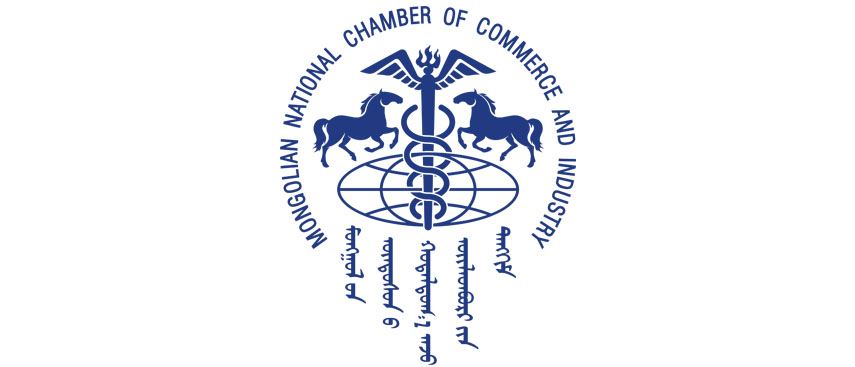
New President of Chamber of Commerce and Industry Receives Seal www.montsame.mn
The 21st Congress of the Mongolian National Chamber of Commerce and Industry (MNCCI) was held last Wednesday which elected a new President and members of the Board of Directors.
The newly elected Board of Directors held its first meeting and re-appointed T. Duuren as the Executive Director of the MNCCI. The newly elected President of the MNCCI D. Enkhtuvshin was handed over the seal from the previous president O. Amartuvshin and started work.
The Mongolian National Chamber of Commerce and Industry elects 25 members of the Presidium of the Chamber. According to the MNCCI Statutes, the members of the Presidium take responsibility for steering activities of the Chamber between the meetings of the Board of Directors.
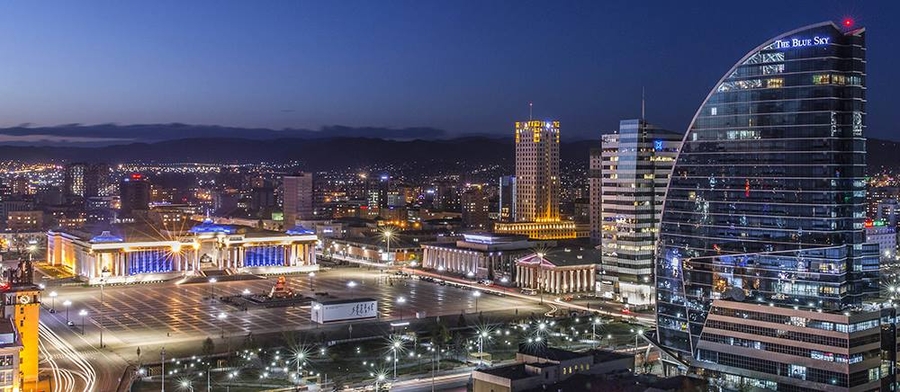
This Week in Mongolia www.montsame.mn
Summary of this week's events:
September 25: The results of the first stage of the “Ulemjiin Chanar” International Long Song Singers Competition will be announced.
September 23-25: The Prime Minister of Mongolia L. Oyun-Erdene will participate in the “New Revival of Dornod” investment forum in the Choibalsan city of Dornod aimag.
September 25-28: The “Jangar” Tea Road cultural and heritage festival will be celebrated in Khovd aimag.
September 25-30: Mongolia-China Friendship Week will take place in Ulaanbaatar city, as well as Dornod and Arkhangai aimags.
September 26: The Mongolian National Chamber of Commerce and Industry and the Chinese International Economic and Cooperation Association will jointly organize the 19th joint meeting between Mongolia and Taiwan.
September 27: The Prime Minister of Mongolia L. Oyun-Erdene will work in Khuvsgul aimag.
September 27: Commemorating World Tourism Day, the “Green Investment – Our Future” event will be held.
September 28-29: The Mongolian Renewables Industries Association will organize the International New Energy Summit 2023.
September 28 - October 1: Ulaanbaatar Partnership International Trade Fair will take place at the international exhibition hall of the Misheel Expo.
September 29: The Prime Minister of Mongolia L. Oyun-Erdene will work in Orkhon aimag.
September 29: Morin Khuur Ensemble of Mongolia will perform the “Duun Deg” concert at the Mongolian State Philharmonic Orchestra.
September 29 – October 1: The National Tourism Exhibition and Forum will be held at the Ara Complex in Arkhangai aimag.
September 30: The concert “Dulaakhan Namar” [“Golden Autumn”] by the Honored Artist of Mongolia S. Javkhlan will be staged at the Central Stadium of Mongolia.
The Autumn Green Days expo will take place until September 26.
The Official Visit of the Chairman of the State Duma of the Federal Assembly of the Russian Federation Vyacheslav Victorovich Volodin to Mongolia will continue.
The Hangzhou 2022 Asian Games will continue.
The solo exhibition “Altan Kholboos” [“Golden Threads”] by State Merit Artist J. Bolortuvshin will continue.
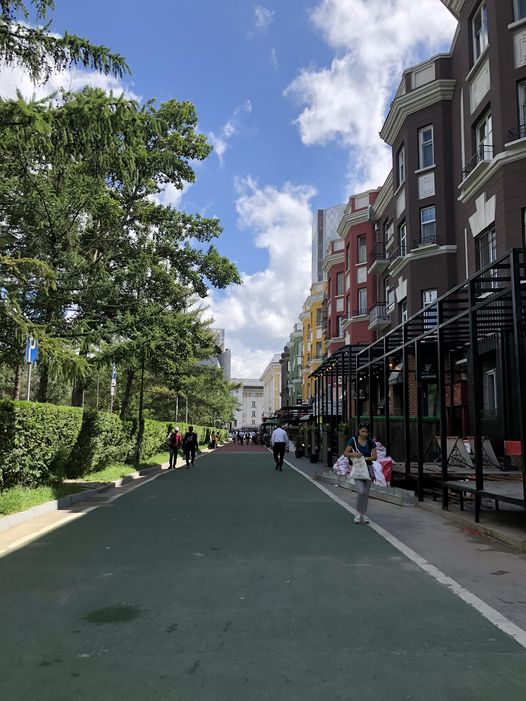
Mongolia observes Car-Free Day in capital to promote healthy living www.xinhuanet.com
Mongolia held its Car-Free Day here on Saturday to reduce traffic congestion, promote healthy living and cut down on vehicle emissions, according to the municipal government of Ulan Bator.
On Car-Free Day, all main roads of the capital city were closed to both private cars and public transport vehicles and only opened for pedestrians and cyclists.
For many years, air pollution and traffic jams have been the most pressing issues in Ulan Bator, home to around half of the country's 3.4 million population.
The Car-Free Day is observed twice a year in the capital city, once in spring and once in autumn.
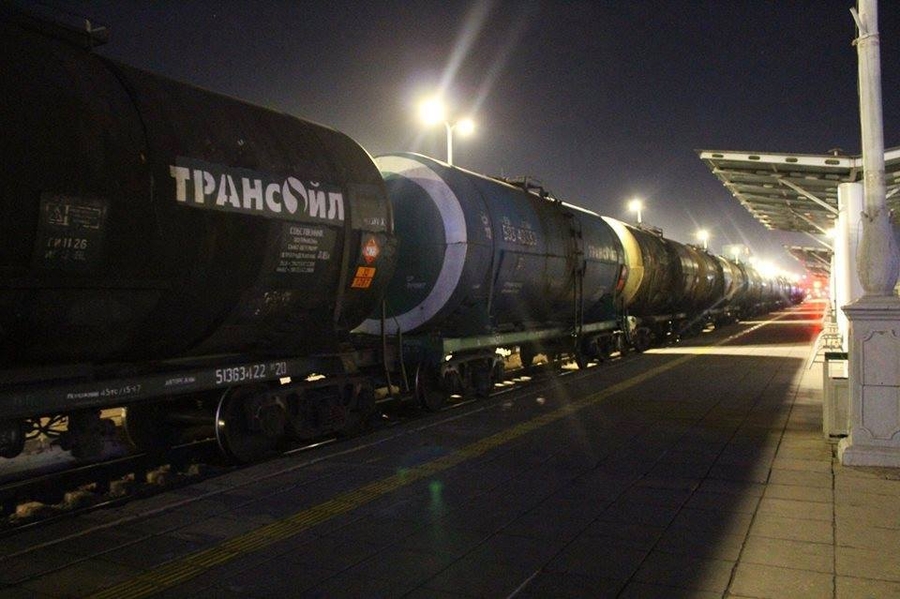
Mongolia not be Subject to Restrictions on Oil Products www.montsame.mn
The Chairman of the State Great Khural of Mongolia G. Zandanshatar and the Chairman of the State Duma of the Federal Assembly of the Russian Federation Vyacheslav Victorovich Volodin held official talks at the State Palace today.
At the outset of the meeting, the Speaker of the Parliament G. Zandanshatar welcomed the Chairman of the State Duma of the Federal Assembly of the Russian Federation V.V. Volodin and expressed Mongolia’s willingness to further strengthen and develop its traditional good neighborly relations with Russia.
The two parties shared the same opinion that this visit of the Chairman of the State Duma V.V. Volodin is important for the expansion of relations and cooperation between the two countries, including the intensification of inter-parliamentary cooperation. During the official visit of the Chairman of the State Great Khural G. Zandanshatar to the Russian Federation last June, the parties agreed to establish a joint commission on inter-parliamentary cooperation between the two countries and hold the first meeting in Ulaanbaatar, which was an important step in the development of the comprehensive strategic partnership between the two countries.
At the first meeting of the joint commission on inter-parliamentary cooperation between the two countries, the direction of further relations and cooperation will be determined along with creating new mechanisms, and inter-parliamentary cooperation will be brought to a new level, emphasized the Chairman of the State Duma V.V. Volodin. “Our two countries are neighbors. It is our duty to further develop the ancient tradition of friendly relations and cooperation between the two countries. It is especially important to develop cooperation of border regions and improve the coordination between the legislative bodies”.
The Chairman of the State Duma V.V. Volodin officially announced during the talks that Mongolia would not be subject to any restrictions on oil products taken by the Government of this country. The Speaker of the Parliament G. Zandanshatar expressed his support in principle for the proposal to hold the next meeting of the Inter-Parliamentary Cooperation Commission in Russia next year.
During the meeting, the parties exchanged detailed views on expanding cooperation in trade, economy, investment, energy, road transport, tourism and humanitarian sectors aimed at strengthening the comprehensive strategic partnership between Mongolia and Russia.
The negotiations between the Chairman of the State Great Khural of Mongolia G. Zandanshatar and the Chairman of the State Duma of the Federal Assembly of the Russian Federation V.V. Volodin took place in a businesslike, open and friendly atmosphere. It was of particular significance in respect of strengthening the mutual trust of the parties, expanding the scope of relations at all levels, and further consolidating the relationship between the legislative bodies of the two countries.
The official visit of the Chairman of the State Duma of the Federal Assembly of the Russian Federation V.V. Volodin to Mongolia continues.
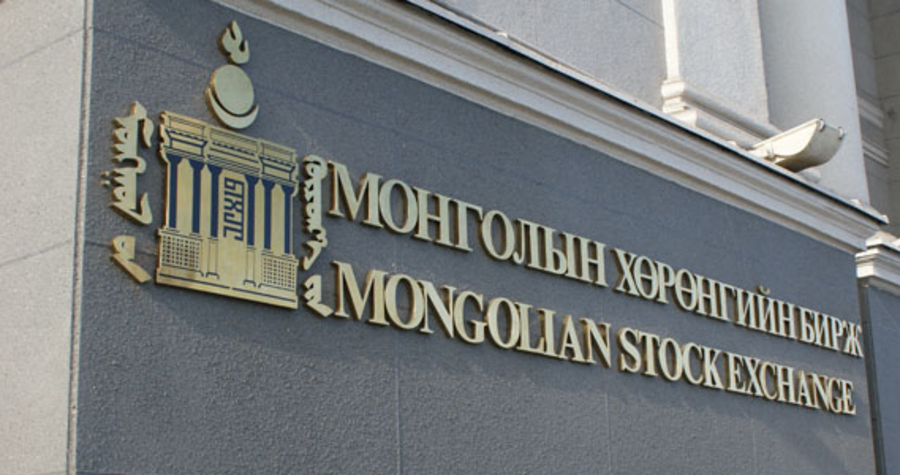
Mongolian stock exchange reaches new historical record www.theubposts.com
The Mongolian Stock Exchange has marked a momentous achievement as it surpassed a trading volume of three trillion MNT within the first nine months of 2023. This significant milestone was reached after the successful sale of 387,000 shares from 43 companies and coal commodities valued at 207 million MNT on the exchange.
To put this achievement into perspective, it’s worth noting that the exchange’s trading volume peaked at 354.4 billion MNT in 2015, a record at that time, during its 25-year history. However, the exchange shattered its previous record in 2021 when it traded securities worth a staggering 1.4 trillion MNT.
The Marketing and Public Relations Department of the Mongolian Stock Exchange attributed this latest achievement to several key factors. First, the inclusion of shares from five major banks and the introduction of 13 new products for trading in 2023 played a pivotal role in boosting trading activity. Additionally, a significant portion of the 3 trillion MNT, over 60 percent, was generated from the trading of coal and iron ore, both vital components of Mongolia’s mining sector.
This accomplishment underscores the continued growth and vibrancy of the Mongolian Stock Exchange, as it continues to play a pivotal role in the country’s financial landscape.
In addition, MSE also introduced a new trading system. Within its plan to regularly carry out trading system and infrastructure reforms, it successfully implemented the Millennium trading system infrastructure reform project as an organization responsible for conducting transparent and error-free securities trading. In the framework, the user acceptance test for the newly installed main trading system was conducted from September 4 to 8, and another test involving all stakeholders of the stock market was conducted from September 9 to 16. On September 18, the system update was successfully introduced into the market considering conducting commercial tests.
As part of the Master Work Agreement established between the London Stock Exchange and the Mongolian Stock Exchange, the Millennium IT complex system for securities trading, settlement, deposit, and control was introduced to the Mongolian stock market on July 2, 2012. With that system, the infrastructure of the domestic stock market has introduced international standards, and not only securities companies, but also investors, can participate in online trading.
- «
- 1
- 2
- 3
- 4
- 5
- 6
- 7
- 8
- 9
- 10
- 11
- 12
- 13
- 14
- 15
- 16
- 17
- 18
- 19
- 20
- 21
- 22
- 23
- 24
- 25
- 26
- 27
- 28
- 29
- 30
- 31
- 32
- 33
- 34
- 35
- 36
- 37
- 38
- 39
- 40
- 41
- 42
- 43
- 44
- 45
- 46
- 47
- 48
- 49
- 50
- 51
- 52
- 53
- 54
- 55
- 56
- 57
- 58
- 59
- 60
- 61
- 62
- 63
- 64
- 65
- 66
- 67
- 68
- 69
- 70
- 71
- 72
- 73
- 74
- 75
- 76
- 77
- 78
- 79
- 80
- 81
- 82
- 83
- 84
- 85
- 86
- 87
- 88
- 89
- 90
- 91
- 92
- 93
- 94
- 95
- 96
- 97
- 98
- 99
- 100
- 101
- 102
- 103
- 104
- 105
- 106
- 107
- 108
- 109
- 110
- 111
- 112
- 113
- 114
- 115
- 116
- 117
- 118
- 119
- 120
- 121
- 122
- 123
- 124
- 125
- 126
- 127
- 128
- 129
- 130
- 131
- 132
- 133
- 134
- 135
- 136
- 137
- 138
- 139
- 140
- 141
- 142
- 143
- 144
- 145
- 146
- 147
- 148
- 149
- 150
- 151
- 152
- 153
- 154
- 155
- 156
- 157
- 158
- 159
- 160
- 161
- 162
- 163
- 164
- 165
- 166
- 167
- 168
- 169
- 170
- 171
- 172
- 173
- 174
- 175
- 176
- 177
- 178
- 179
- 180
- 181
- 182
- 183
- 184
- 185
- 186
- 187
- 188
- 189
- 190
- 191
- 192
- 193
- 194
- 195
- 196
- 197
- 198
- 199
- 200
- 201
- 202
- 203
- 204
- 205
- 206
- 207
- 208
- 209
- 210
- 211
- 212
- 213
- 214
- 215
- 216
- 217
- 218
- 219
- 220
- 221
- 222
- 223
- 224
- 225
- 226
- 227
- 228
- 229
- 230
- 231
- 232
- 233
- 234
- 235
- 236
- 237
- 238
- 239
- 240
- 241
- 242
- 243
- 244
- 245
- 246
- 247
- 248
- 249
- 250
- 251
- 252
- 253
- 254
- 255
- 256
- 257
- 258
- 259
- 260
- 261
- 262
- 263
- 264
- 265
- 266
- 267
- 268
- 269
- 270
- 271
- 272
- 273
- 274
- 275
- 276
- 277
- 278
- 279
- 280
- 281
- 282
- 283
- 284
- 285
- 286
- 287
- 288
- 289
- 290
- 291
- 292
- 293
- 294
- 295
- 296
- 297
- 298
- 299
- 300
- 301
- 302
- 303
- 304
- 305
- 306
- 307
- 308
- 309
- 310
- 311
- 312
- 313
- 314
- 315
- 316
- 317
- 318
- 319
- 320
- 321
- 322
- 323
- 324
- 325
- 326
- 327
- 328
- 329
- 330
- 331
- 332
- 333
- 334
- 335
- 336
- 337
- 338
- 339
- 340
- 341
- 342
- 343
- 344
- 345
- 346
- 347
- 348
- 349
- 350
- 351
- 352
- 353
- 354
- 355
- 356
- 357
- 358
- 359
- 360
- 361
- 362
- 363
- 364
- 365
- 366
- 367
- 368
- 369
- 370
- 371
- 372
- 373
- 374
- 375
- 376
- 377
- 378
- 379
- 380
- 381
- 382
- 383
- 384
- 385
- 386
- 387
- 388
- 389
- 390
- 391
- 392
- 393
- 394
- 395
- 396
- 397
- 398
- 399
- 400
- 401
- 402
- 403
- 404
- 405
- 406
- 407
- 408
- 409
- 410
- 411
- 412
- 413
- 414
- 415
- 416
- 417
- 418
- 419
- 420
- 421
- 422
- 423
- 424
- 425
- 426
- 427
- 428
- 429
- 430
- 431
- 432
- 433
- 434
- 435
- 436
- 437
- 438
- 439
- 440
- 441
- 442
- 443
- 444
- 445
- 446
- 447
- 448
- 449
- 450
- 451
- 452
- 453
- 454
- 455
- 456
- 457
- 458
- 459
- 460
- 461
- 462
- 463
- 464
- 465
- 466
- 467
- 468
- 469
- 470
- 471
- 472
- 473
- 474
- 475
- 476
- 477
- 478
- 479
- 480
- 481
- 482
- 483
- 484
- 485
- 486
- 487
- 488
- 489
- 490
- 491
- 492
- 493
- 494
- 495
- 496
- 497
- 498
- 499
- 500
- 501
- 502
- 503
- 504
- 505
- 506
- 507
- 508
- 509
- 510
- 511
- 512
- 513
- 514
- 515
- 516
- 517
- 518
- 519
- 520
- 521
- 522
- 523
- 524
- 525
- 526
- 527
- 528
- 529
- 530
- 531
- 532
- 533
- 534
- 535
- 536
- 537
- 538
- 539
- 540
- 541
- 542
- 543
- 544
- 545
- 546
- 547
- 548
- 549
- 550
- 551
- 552
- 553
- 554
- 555
- 556
- 557
- 558
- 559
- 560
- 561
- 562
- 563
- 564
- 565
- 566
- 567
- 568
- 569
- 570
- 571
- 572
- 573
- 574
- 575
- 576
- 577
- 578
- 579
- 580
- 581
- 582
- 583
- 584
- 585
- 586
- 587
- 588
- 589
- 590
- 591
- 592
- 593
- 594
- 595
- 596
- 597
- 598
- 599
- 600
- 601
- 602
- 603
- 604
- 605
- 606
- 607
- 608
- 609
- 610
- 611
- 612
- 613
- 614
- 615
- 616
- 617
- 618
- 619
- 620
- 621
- 622
- 623
- 624
- 625
- 626
- 627
- 628
- 629
- 630
- 631
- 632
- 633
- 634
- 635
- 636
- 637
- 638
- 639
- 640
- 641
- 642
- 643
- 644
- 645
- 646
- 647
- 648
- 649
- 650
- 651
- 652
- 653
- 654
- 655
- 656
- 657
- 658
- 659
- 660
- 661
- 662
- 663
- 664
- 665
- 666
- 667
- 668
- 669
- 670
- 671
- 672
- 673
- 674
- 675
- 676
- 677
- 678
- 679
- 680
- 681
- 682
- 683
- 684
- 685
- 686
- 687
- 688
- 689
- 690
- 691
- 692
- 693
- 694
- 695
- 696
- 697
- 698
- 699
- 700
- 701
- 702
- 703
- 704
- 705
- 706
- 707
- 708
- 709
- 710
- 711
- 712
- 713
- 714
- 715
- 716
- 717
- 718
- 719
- 720
- 721
- 722
- 723
- 724
- 725
- 726
- 727
- 728
- 729
- 730
- 731
- 732
- 733
- 734
- 735
- 736
- 737
- 738
- 739
- 740
- 741
- 742
- 743
- 744
- 745
- 746
- 747
- 748
- 749
- 750
- 751
- 752
- 753
- 754
- 755
- 756
- 757
- 758
- 759
- 760
- 761
- 762
- 763
- 764
- 765
- 766
- 767
- 768
- 769
- 770
- 771
- 772
- 773
- 774
- 775
- 776
- 777
- 778
- 779
- 780
- 781
- 782
- 783
- 784
- 785
- 786
- 787
- 788
- 789
- 790
- 791
- 792
- 793
- 794
- 795
- 796
- 797
- 798
- 799
- 800
- 801
- 802
- 803
- 804
- 805
- 806
- 807
- 808
- 809
- 810
- 811
- 812
- 813
- 814
- 815
- 816
- 817
- 818
- 819
- 820
- 821
- 822
- 823
- 824
- 825
- 826
- 827
- 828
- 829
- 830
- 831
- 832
- 833
- 834
- 835
- 836
- 837
- 838
- 839
- 840
- 841
- 842
- 843
- 844
- 845
- 846
- 847
- 848
- 849
- 850
- 851
- 852
- 853
- 854
- 855
- 856
- 857
- 858
- 859
- 860
- 861
- 862
- 863
- 864
- 865
- 866
- 867
- 868
- 869
- 870
- 871
- 872
- 873
- 874
- 875
- 876
- 877
- 878
- 879
- 880
- 881
- 882
- 883
- 884
- 885
- 886
- 887
- 888
- 889
- 890
- 891
- 892
- 893
- 894
- 895
- 896
- 897
- 898
- 899
- 900
- 901
- 902
- 903
- 904
- 905
- 906
- 907
- 908
- 909
- 910
- 911
- 912
- 913
- 914
- 915
- 916
- 917
- 918
- 919
- 920
- 921
- 922
- 923
- 924
- 925
- 926
- 927
- 928
- 929
- 930
- 931
- 932
- 933
- 934
- 935
- 936
- 937
- 938
- 939
- 940
- 941
- 942
- 943
- 944
- 945
- 946
- 947
- 948
- 949
- 950
- 951
- 952
- 953
- 954
- 955
- 956
- 957
- 958
- 959
- 960
- 961
- 962
- 963
- 964
- 965
- 966
- 967
- 968
- 969
- 970
- 971
- 972
- 973
- 974
- 975
- 976
- 977
- 978
- 979
- 980
- 981
- 982
- 983
- 984
- 985
- 986
- 987
- 988
- 989
- 990
- 991
- 992
- 993
- 994
- 995
- 996
- 997
- 998
- 999
- 1000
- 1001
- 1002
- 1003
- 1004
- 1005
- 1006
- 1007
- 1008
- 1009
- 1010
- 1011
- 1012
- 1013
- 1014
- 1015
- 1016
- 1017
- 1018
- 1019
- 1020
- 1021
- 1022
- 1023
- 1024
- 1025
- 1026
- 1027
- 1028
- 1029
- 1030
- 1031
- 1032
- 1033
- 1034
- 1035
- 1036
- 1037
- 1038
- 1039
- 1040
- 1041
- 1042
- 1043
- 1044
- 1045
- 1046
- 1047
- 1048
- 1049
- 1050
- 1051
- 1052
- 1053
- 1054
- 1055
- 1056
- 1057
- 1058
- 1059
- 1060
- 1061
- 1062
- 1063
- 1064
- 1065
- 1066
- 1067
- 1068
- 1069
- 1070
- 1071
- 1072
- 1073
- 1074
- 1075
- 1076
- 1077
- 1078
- 1079
- 1080
- 1081
- 1082
- 1083
- 1084
- 1085
- 1086
- 1087
- 1088
- 1089
- 1090
- 1091
- 1092
- 1093
- 1094
- 1095
- 1096
- 1097
- 1098
- 1099
- 1100
- 1101
- 1102
- 1103
- 1104
- 1105
- 1106
- 1107
- 1108
- 1109
- 1110
- 1111
- 1112
- 1113
- 1114
- 1115
- 1116
- 1117
- 1118
- 1119
- 1120
- 1121
- 1122
- 1123
- 1124
- 1125
- 1126
- 1127
- 1128
- 1129
- 1130
- 1131
- 1132
- 1133
- 1134
- 1135
- 1136
- 1137
- 1138
- 1139
- 1140
- 1141
- 1142
- 1143
- 1144
- 1145
- 1146
- 1147
- 1148
- 1149
- 1150
- 1151
- 1152
- 1153
- 1154
- 1155
- 1156
- 1157
- 1158
- 1159
- 1160
- 1161
- 1162
- 1163
- 1164
- 1165
- 1166
- 1167
- 1168
- 1169
- 1170
- 1171
- 1172
- 1173
- 1174
- 1175
- 1176
- 1177
- 1178
- 1179
- 1180
- 1181
- 1182
- 1183
- 1184
- 1185
- 1186
- 1187
- 1188
- 1189
- 1190
- 1191
- 1192
- 1193
- 1194
- 1195
- 1196
- 1197
- 1198
- 1199
- 1200
- 1201
- 1202
- 1203
- 1204
- 1205
- 1206
- 1207
- 1208
- 1209
- 1210
- 1211
- 1212
- 1213
- 1214
- 1215
- 1216
- 1217
- 1218
- 1219
- 1220
- 1221
- 1222
- 1223
- 1224
- 1225
- 1226
- 1227
- 1228
- 1229
- 1230
- 1231
- 1232
- 1233
- 1234
- 1235
- 1236
- 1237
- 1238
- 1239
- 1240
- 1241
- 1242
- 1243
- 1244
- 1245
- 1246
- 1247
- 1248
- 1249
- 1250
- 1251
- 1252
- 1253
- 1254
- 1255
- 1256
- 1257
- 1258
- 1259
- 1260
- 1261
- 1262
- 1263
- 1264
- 1265
- 1266
- 1267
- 1268
- 1269
- 1270
- 1271
- 1272
- 1273
- 1274
- 1275
- 1276
- 1277
- 1278
- 1279
- 1280
- 1281
- 1282
- 1283
- 1284
- 1285
- 1286
- 1287
- 1288
- 1289
- 1290
- 1291
- 1292
- 1293
- 1294
- 1295
- 1296
- 1297
- 1298
- 1299
- 1300
- 1301
- 1302
- 1303
- 1304
- 1305
- 1306
- 1307
- 1308
- 1309
- 1310
- 1311
- 1312
- 1313
- 1314
- 1315
- 1316
- 1317
- 1318
- 1319
- 1320
- 1321
- 1322
- 1323
- 1324
- 1325
- 1326
- 1327
- 1328
- 1329
- 1330
- 1331
- 1332
- 1333
- 1334
- 1335
- 1336
- 1337
- 1338
- 1339
- 1340
- 1341
- 1342
- 1343
- 1344
- 1345
- 1346
- 1347
- 1348
- 1349
- 1350
- 1351
- 1352
- 1353
- 1354
- 1355
- 1356
- 1357
- 1358
- 1359
- 1360
- 1361
- 1362
- 1363
- 1364
- 1365
- 1366
- 1367
- 1368
- 1369
- 1370
- 1371
- 1372
- 1373
- 1374
- 1375
- 1376
- 1377
- 1378
- 1379
- 1380
- 1381
- 1382
- 1383
- 1384
- 1385
- 1386
- 1387
- 1388
- 1389
- 1390
- 1391
- 1392
- 1393
- 1394
- 1395
- 1396
- 1397
- 1398
- 1399
- 1400
- 1401
- 1402
- 1403
- 1404
- 1405
- 1406
- 1407
- 1408
- 1409
- 1410
- 1411
- 1412
- 1413
- 1414
- 1415
- 1416
- 1417
- 1418
- 1419
- 1420
- 1421
- 1422
- 1423
- 1424
- 1425
- 1426
- 1427
- 1428
- 1429
- 1430
- 1431
- 1432
- 1433
- 1434
- 1435
- 1436
- 1437
- 1438
- 1439
- 1440
- 1441
- 1442
- 1443
- 1444
- 1445
- 1446
- 1447
- 1448
- 1449
- 1450
- 1451
- 1452
- 1453
- 1454
- 1455
- 1456
- 1457
- 1458
- 1459
- 1460
- 1461
- 1462
- 1463
- 1464
- 1465
- 1466
- 1467
- 1468
- 1469
- 1470
- 1471
- 1472
- 1473
- 1474
- 1475
- 1476
- 1477
- 1478
- 1479
- 1480
- 1481
- 1482
- 1483
- 1484
- 1485
- 1486
- 1487
- 1488
- 1489
- 1490
- 1491
- 1492
- 1493
- 1494
- 1495
- 1496
- 1497
- 1498
- 1499
- 1500
- 1501
- 1502
- 1503
- 1504
- 1505
- 1506
- 1507
- 1508
- 1509
- 1510
- 1511
- 1512
- 1513
- 1514
- 1515
- 1516
- 1517
- 1518
- 1519
- 1520
- 1521
- 1522
- 1523
- 1524
- 1525
- 1526
- 1527
- 1528
- 1529
- 1530
- 1531
- 1532
- 1533
- 1534
- 1535
- 1536
- 1537
- 1538
- 1539
- 1540
- 1541
- 1542
- 1543
- 1544
- 1545
- 1546
- 1547
- 1548
- 1549
- 1550
- 1551
- 1552
- 1553
- 1554
- 1555
- 1556
- 1557
- 1558
- 1559
- 1560
- 1561
- 1562
- 1563
- 1564
- 1565
- 1566
- 1567
- 1568
- 1569
- 1570
- 1571
- 1572
- 1573
- 1574
- 1575
- 1576
- 1577
- 1578
- 1579
- 1580
- 1581
- 1582
- 1583
- 1584
- 1585
- 1586
- 1587
- 1588
- 1589
- 1590
- 1591
- 1592
- 1593
- 1594
- 1595
- 1596
- 1597
- 1598
- 1599
- 1600
- 1601
- 1602
- 1603
- 1604
- 1605
- 1606
- 1607
- 1608
- 1609
- 1610
- 1611
- 1612
- 1613
- 1614
- 1615
- 1616
- 1617
- 1618
- 1619
- 1620
- 1621
- 1622
- 1623
- 1624
- 1625
- 1626
- 1627
- 1628
- 1629
- 1630
- 1631
- 1632
- 1633
- 1634
- 1635
- 1636
- 1637
- 1638
- 1639
- 1640
- 1641
- 1642
- 1643
- 1644
- 1645
- 1646
- 1647
- 1648
- 1649
- 1650
- 1651
- 1652
- 1653
- 1654
- 1655
- 1656
- 1657
- 1658
- 1659
- 1660
- 1661
- 1662
- 1663
- 1664
- 1665
- 1666
- 1667
- 1668
- 1669
- 1670
- 1671
- 1672
- 1673
- 1674
- 1675
- 1676
- 1677
- 1678
- 1679
- 1680
- 1681
- 1682
- 1683
- 1684
- 1685
- 1686
- 1687
- 1688
- 1689
- 1690
- 1691
- 1692
- 1693
- 1694
- 1695
- 1696
- 1697
- 1698
- 1699
- 1700
- 1701
- 1702
- 1703
- 1704
- 1705
- 1706
- 1707
- 1708
- 1709
- 1710
- 1711
- 1712
- 1713
- 1714
- 1715
- 1716
- 1717
- 1718
- 1719
- 1720
- 1721
- 1722
- 1723
- 1724
- 1725
- 1726
- 1727
- »






